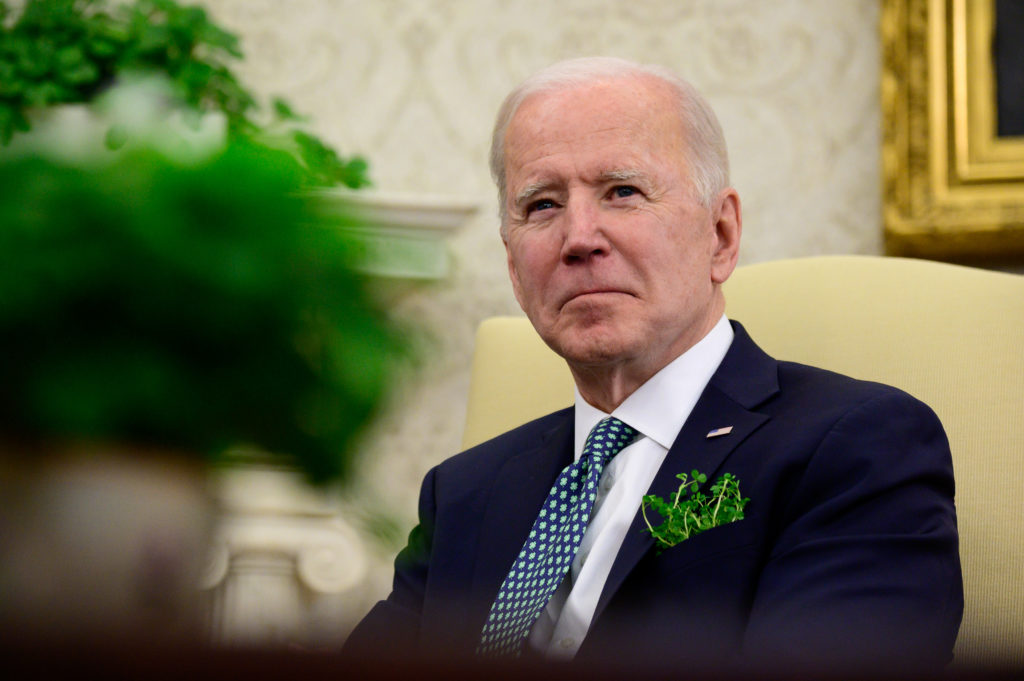JOE BIDEN has been criticised by a top Northern Irish economist for putting the blame on the British for Ireland's devastating famine in the 1800's.
Last week, during his first press conference as President of the United States, Mr Biden responded to a question about illegal immigration to the US by referring to his own Irish ancestors.
He said:
"When my great grandfather got in a coffin ship in the Irish Sea, [the] expectation was, 'was he going to live long enough on that ship to get to the United States of America?'"
"But they left because of what the Brits had been doing. They were in real, real trouble.
"They didn’t want to leave, but they had no choice."
 Joe Biden
Joe BidenMr Biden's comments have drawn criticism from top Northern Irish economist Dr Esmond Birnie, a Senior Economist at Ulster University Business School and Senior Research Fellow at Pivotal NI Policy Forum.
Dr Birnie told Northern Irish publication Newsletter that President Biden's views "may display a limited interpretation of what was actually happening during the 1840s Irish Famine."
He continued: "This matters because there always has been a view that what actually happened was a deliberate act of policy by the British government- population reduction and clearance on a grand scale. It is not clear if the President actually subscribes to this extreme view but his comments may give comfort to those who do think that way."
Mr Birnie said that the UK government did not introduce "the potato disease" to Ireland, and while hundreds of thousands of people died in the six counties which would later become Northern Ireland alone, and "no one should downplay" the massive tragedy of the famine, many other countries experienced a devastating famine around the same time.
He accepted that the British state could have done more to help the Irish people during the Great Hunger, but argued that Britain was not a welfare state at the time and was limited in what it could do, and it would be dangerous for President Biden's feelings around the famine to potentially affect his policies.
Mr Biden is "entitled to believe whatever he wants about his family history" but "Northern Ireland could face problems if he allows those beliefs to distort his approach to policy", Dr Birnie said.
"The President's approach needs to be balanced," he added.
Last year, Ireland's national broadcaster, RTÉ, aired a two-part documentary series about Ireland's devastating famine, delving deep into the disturbing, horrific and largely preventable reality of the damage done to Ireland during that time, where one million people died and one million more emigrated, a catastrophe which the country has still not come back from in terms of population alone.
The documentary, narrated by Liam Neeson, combines illustrations of the country at the time with modern-day images of Ireland, along with quotes from people affected by the catastrophe and analysis from historians.
You can read more about the RTÉ documentary "The Hunger: The Story of the Irish Famine" here.

